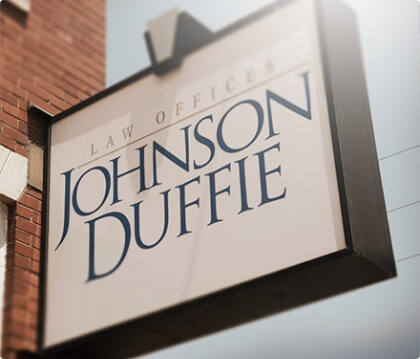
Provide your game plan for the expected and unexpected for 2020 by making a New Year’s resolution to review your estate planning documents.
(The is our first in a series of CROSSROADS Articles. See Below.)
We plan for the expected: holidays, birthdays, anniversaries. We plan for the unexpected: rainy day accounts, checking account reserves, extra gifts for that last minute invitation. What about planning for the “just in case” when someone needs assistance, whether for convenience or for hardship, when that someone might be you or someone in your family.
Mark your calendars to attend one of the free seminars below! Johnson Duffie Estate Planning and Family Law Attorneys Hannah Herman-Snyder, Rosemarie Gavin-Casner and Amy L. Owen are presenting informational sessions at several area public libraries:
Monday, February 24, 2020 at 1:30 p.m. at the
Alexander Family Library
200 W. 2nd Street
Hummelstown, Pennsylvania 17036
Tuesday, March 10, 2020 at 6:30 p.m. and
Tuesday, March 17, 2020 at 6:30 p.m. at the
Kline Library
530 S. 29th Street
Harrisburg, Pennsylvania 17104
Pennsylvania is very protective of private property and that is a good thing. If you don’t provide instructions for your “unexpected,” Pennsylvania law makes your family jump through hoops which may be avoided with good planning. This saves time and money!
1. Durable Financial Power of Attorney
If you need assistance with an account titled in your name (for example, a bank or investment account) and you appointed an Agent under a Financial Power of Attorney, your Agent can assist at a moment’s notice. If you do not have a Financial Power of Attorney, no one can assist without a Court Order appointing a guardian, which can be time consuming and expensive to obtain.
2. Durable Health Care Power of Attorney and Advanced Directive
You are the best person to select someone to make health care decisions for your if you are in an accident and/or not able to communicate. Pennsylvania law provides a back-up plan which is likely fine in an emergency; but do you really want the legislature telling your doctors who can make medical decisions for you? Similarly, you are the only person who can make known your preferences regarding end-of-life decisions. If you do not communicate your preferences, Pennsylvania provides a default set of rules for end-of-life choices.
3. Life Insurance, Retirement Accounts, Pension Accounts
Another key part of estate planning includes beneficiary designations. When you name a beneficiary, regardless of what you provide for in your Last Will and Testament, those assets pass directly, by operation of law, to the named beneficiary. The New Year is a good time to review beneficiary designations for both “primary” beneficiaries and “contingent” beneficiaries.
4. Real Estate
Real estate is often a large portion of your net worth, whether it’s your home or your vacation home. When you purchased your real estate, do you recall conversations about taking “title” as “tenants in common” or “joint tenants” or “tenants by the entirety”? Did you purchase it with a family member or with a partner? Have you gotten married or divorced since you purchased the real estate? How you take title to real estate is important. It does not automatically change because of life events. The title to real estate only changes by recording a new deed with a changed ownership designation.
5. Trusts
Trusts are special instruments that hold title to assets and provide instructions while you are living as well as after death. Trusts may be revocable or irrevocable depending upon your objectives. Trusts may also be created under the Last Will and Testament for special purposes.
6. Last Will and Testament
Last but not least, the Last Will and Testament provides your instructions for all remaining assets for which you have not already provided instructions. The Last Will and Testament works with all your assets to ensure your overall gifting plan operates how you intend it to operate. The Last Will and Testament is the most flexible and robust document in your estate plan which can accomplish almost anything you can imagine, whether establishing trusts for minors or special needs beneficiaries, to providing gifting over decades for children, grandchildren, family, friends, and charitable organizations.
CROSSROADS – This is the first of a series of articles explaining how Johnson Duffie can assist when individuals and businesses are at the “Crossroads” of change and/or transition, whether with Family Law (birth, marriage, custody, guardianship, divorce and aging); Trusts and Estates (Planning and Administration); Real Estate; and Business (startup, mergers and acquisitions, and succession planning).